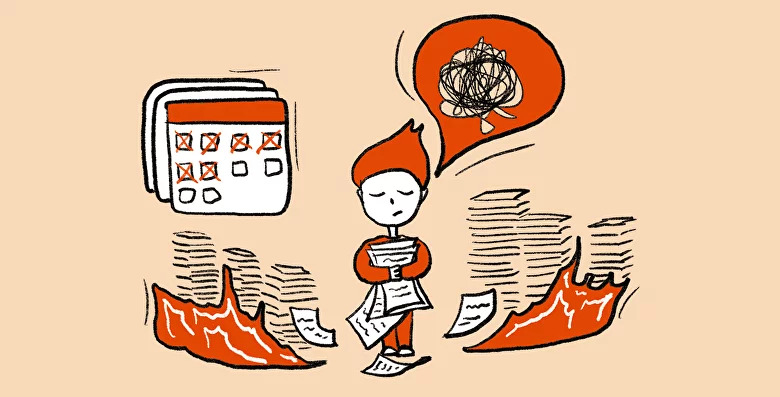Anxiety and worry in response to a threat to life and health is a normal physiological reaction. If a person is absolutely not afraid of anything, then this is more likely a mental disorder, such as depression or apathy.
1. Dose the received information. Choose a few official sources and mass media that you trust, evaluate the received information soberly and take breaks while reading the news. Remember that you can suffer more from news and information than from being directly in the zone of a terrorist attack, war, etc. An information attack is the most traumatic in a situation of military threat. Since mass panic negatively affects the adequacy of human reactions,
2. Plan the future! Do not "freeze", at least in your head, any plans. Everyone is now focused on the news, where are the tanks, military deployment bases, and so on. You should not focus your attention on this. Plan how you will spend your vacation, how you will do repairs, etc., where you will work after graduation, etc.
3. Take care of someone. This actually works well, so find an object you care about. It can be your relatives, pets, house plants, but your anxiety level will decrease significantly.
4. Be active. Do not sit still, do not wait for something, be sure to continue living, doing simple household chores - this will help your body get rid of physical tension caused by anxiety.
5. Refrain from drinking alcohol. During intoxication, a person is quite emotionally vulnerable, and the level of anxiety only increases. If you already experience anxiety that you cannot cope with on your own, it is better to turn to a specialist rather than psychotropic substances.
6. Anti-stress behavior. Physical activity, exercises allow you to produce more serotonin and contribute to better sleep. The more we fear, the more resources we spend on overcoming the anxiety threshold. A good sleep (7-8 hours), a healthy diet and physical activity are the keys to stress resistance. Such basic things will help you be in harmony with your body and restore a sense of security.
7. Allow yourself things that bring pleasure, no matter how small, however, it is reassuring. It can be coffee, candy, reading a book, watching your favorite movie or listening to music.
8. Experience troubles only as they come. There is no need to think, fantasize, go through different options for the development of the event in your head. Such thoughts will definitely not serve emotional stability.
9. Do not stay alone with your own experiences. If possible, unite with family and relatives, share your feelings and follow tips 1-8 together.
Remember, we are all different, but we are all adaptable. You should properly work on your emotional state in a critical situation in order to live on and take a step into the future.
Take care of yourself and loved ones. Everything will be fine.

